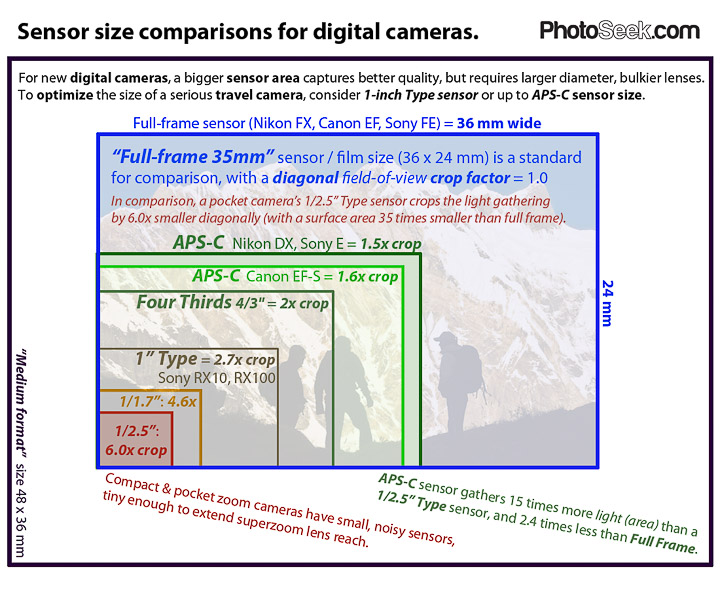Camera Fun
Senior Member
Help my brain understand the following based on what I've read:
Megapixels and low light:
If two sensors are otherwise equal in technology but one is 16mp and on is 24mp, then is the 16mp going to be better in low light because the pixels are larger?
Megapixels and sensor size:
If a DX sensor and an FX sensor have the same mp, are the pixels the same size or are the pixels larger on the FX sensor due to its larger area?
If the pixels are larger, does that make the FX sensor better in low light or is it the larger area of the sensor?
Which also leads to the question of which sensor would technically have the better image quality?
Thanks.
Megapixels and low light:
If two sensors are otherwise equal in technology but one is 16mp and on is 24mp, then is the 16mp going to be better in low light because the pixels are larger?
Megapixels and sensor size:
If a DX sensor and an FX sensor have the same mp, are the pixels the same size or are the pixels larger on the FX sensor due to its larger area?
If the pixels are larger, does that make the FX sensor better in low light or is it the larger area of the sensor?
Which also leads to the question of which sensor would technically have the better image quality?
Thanks.



